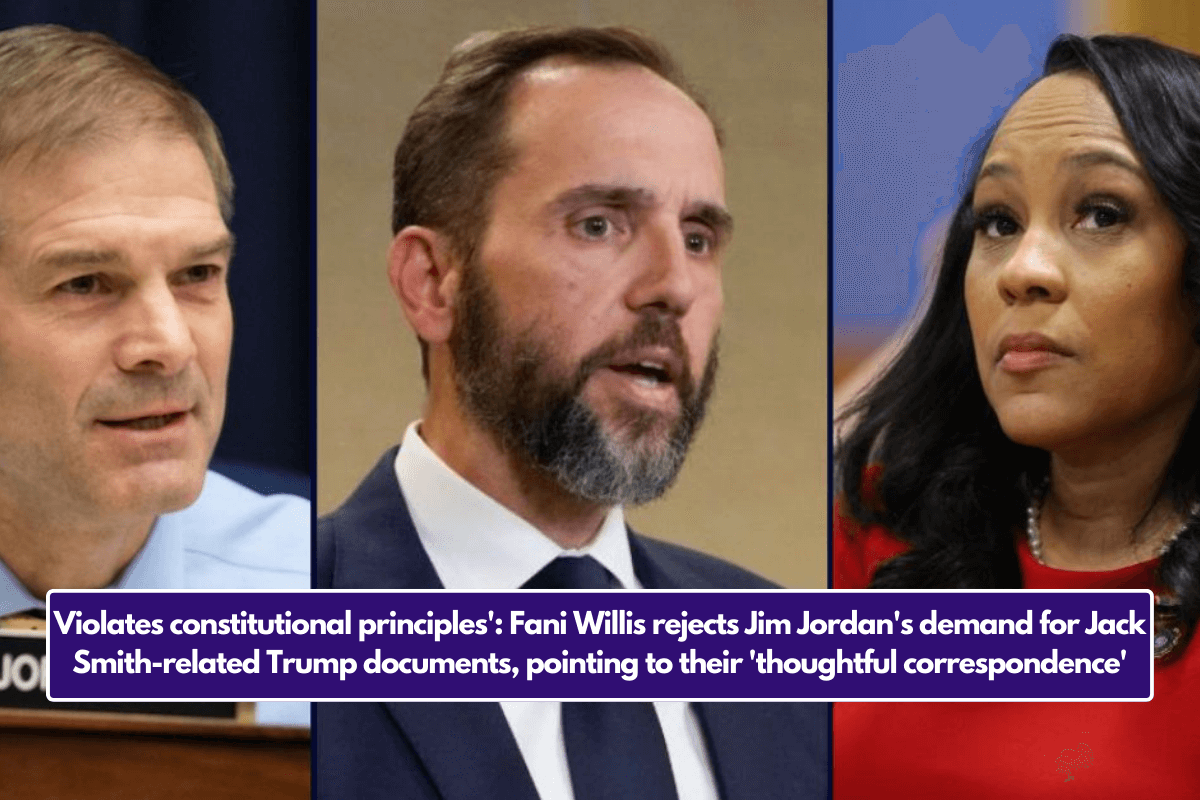One quick resolution in the racketeering (RICO) case against President-elect Donald Trump and others was exactly that — a resolution of the case — a judge in Georgia ruled on Friday morning.
Earlier this month, attorney Kenneth Chesebro asked a Peach State trial court to overturn his guilty plea in the ongoing case.
Fulton County Superior Court Judge Scott McAfee dismissed the request as procedurally deficient.
Chesebro is well-known as one of the authors of the so-called “coup memos,” which provided legal advice on how the 45th and 47th presidents could overturn the results of the 2020 presidential election in a “constitutionally defensible manner.”
Specifically, the New York attorney was a key architect of the alternate or “fake” electors scheme.
Chesebro was charged with seven counts in the wide-ranging indictment filed by embattled Fulton County District Attorney Fani Willis.
These charges included one alleged RICO violation, one count of conspiracy to impersonate a public officer, two counts of first-degree forgery, two counts of conspiracy to make false statements and writings, and one count of conspiracy to file false documents.
Chesebro was one of two co-defendants, along with Texas-based attorney Sidney Powell, who initially claimed the right to a speedy trial, which separated their cases from the other 17 co-defendants.
Following the 2020 election, Chesebro and Powell were lumped together for their vastly different efforts in support of Trump. So they both requested to be separated again. Fulton County Superior Judge Scott McAfee denied the request and scheduled their trial for October 23, 2023.
In the end, both Chesebro and Powell accepted plea bargains.
Days before his trial, Chesebro pleaded guilty to one count of conspiracy to file false documents in exchange for Willis dropping the other six counts.
As part of his deal, Chesebro agreed to testify for the state against the remaining co-defendants and was sentenced to five years probation, 100 hours of community service, and a $5,000 fine.
Chesebro recently used a plea in bar to highlight the fact that the crime to which he pleaded guilty was later declared invalid by the trial court.
On September 12, McAfee dismissed three counts — 14, 15, and 27 — citing the doctrine of federal preemption, explaining that an 1890 U.S. Supreme Court decision stylized as In re Loney “preempts the State’s ability to prosecute perjury and false filings in a federal district court.”
In the defense motion, Chesebro’s lawyer cited Georgia law to argue that “a defendant cannot plead guilty to a charge that does not constitute a crime.”
Furthermore, the defense argued that subsequent trial court proceedings rendered the false document conspiracy charge ineffective.
In the Friday order, McAfee stated that the plea in bar was too little, too late. And, specifically, the incorrect way to challenge the conviction.
“Procedurally defective in more ways than one, the motion is dismissed,” the court’s ruling states. “At the outset, the undersigned concludes that the Defendant’s invoked remedy is entirely inapt.”
The court observes that a plea in bar allows a defendant to “challenge the validity” of an indictment, citing the Chesebro motion to make the point.
However, the judge points out that Chesebro has already filed a motion challenging the indictment, which does not mention the Loney case.
In any case, the judge explains, a plea in bar is not and cannot be used after someone has been convicted.
“Defendant’s sole citation in support of his contention that a plea in bar is a post-conviction remedy, rather than a form of pretrial challenge, does not suggest otherwise,” it continues.
The judge cites Peach State case law to explain the only options available for a similarly situated post-conviction challengea:
[W]here the time for filing a direct appeal from the criminal conviction or a motion for new trial has expired, a defendant attacking his underlying conviction is limited to the traditionally recognized proceedings of an extraordinary motion for new trial, a motion to withdraw his guilty plea, a motion in arrest of judgment, or a petition for habeas corpus.
McAfee asserts that Chesebro is not eligible for an arrest of judgment, as the statute under which he entered a guilty plea led to a process similar to deferred adjudication, where a charge stays pending until the defendant completes their sentence.
This, the judge observes, is a type of judicial leniency available to first-time offenders. According to the court, there was no “judgment” of guilt in Chesebro’s case, so there is no judgment to dismiss.
In any case, the judge declares that time has passed.
“Setting that aside, a motion in arrest of judgment must be filed during the term when the judgment was entered,” the court’s ruling states. “If filed late, the trial court lacks jurisdiction, and the motion must be dismissed.
The Fulton County Superior Court entered the defendant’s convictions on October 23, 2023, during the September/October term that concluded on November 6, 2023.
More than a year had passed since the defendant’s conviction, when he filed this motion. The motion, to the extent he had any right to pursue one at all, is thus untimely.”
McAfee also dismisses the idea that Chesebro could seek a new trial because “there was no trial” in the first place.
Finally, the judge asserts that he lacks the authority to impose the defendant’s requested punishment because Georgia law does not prohibit it.
“This Court lacks jurisdiction to grant the requested relief,” McAfee states. “The motion is dismissed.”
Manny Arora, Chesebro’s attorney, is unfazed by the outcome.
The defense attorney expressed confidence that the Friday decision was merely a blip on a longer journey—one that was, in some ways, anticipated.
Arora informed me that they denied the motion on procedural grounds, not on merit. “Count 15 is invalid; however, in order to obtain that remedy, we will have to go the longer route of civil habeas corpus.”
We acknowledged in our motion that the basis for relief may have some procedural hurdles, which the judge highlighted in his order. Again, the key is that the judge denied our motion on jurisdictional grounds rather than on merit.”













